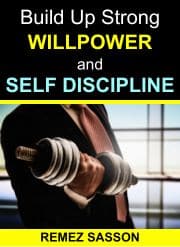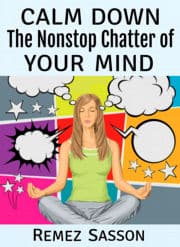
The human mind is an incredible thing: it absorbs our experiences and thoughts and helps us to form our sense of identity. Yet, with the change in our life circumstances, we tend to ask ourselves, ‘Who am I really?’ as we no longer relate to the way we used to see ourselves.
That’s exactly what happens when one experiences an identity crisis. Let’s talk about what identity is, how to spot an identity crisis, and how to deal with it.
What is Identity or Who Am I Really?
By identity, we mean all the experiences, values, beliefs, relationships, and memories that form the human’s sense of self.
Browse our online courses on meditation, positive thinking, overcoming procrastination, confidence, and freedom from distractions.
An identity crisis develops when we feel a disconnection from what we previously established as our identity. That’s what is studied in college in Psychology classes, and education plays an important role in how a person deals with identity questions. Writing an essay about who am I is a very common practice for every student to implement their knowledge on the concept of identity and create a vivid picture of themselves at the moment. Students publish free essays on the topic to share their insights with others.
Signs of an Identity Crisis
An identity crisis is a developmental process that involves a person questioning who he/she/they are. In other words, it’s one’s inability to identify oneself in this world. People may experience an identity crisis after any change of status quo in their lives.
Below is the list of the most common events that can propel it:
- Marriage or divorce
- Losing a loved one
- Birth of a kid
- Change of health condition
- Moving
- Quitting or finding a job
- Gender reassignment surgery
How to Spot an Identity Crisis?
The identity crisis isn’t something very obvious. However, the most surefire way to figure it out is to ask a person a few questions and see if they can answer them confidently:
- What are you passionate about?
- Can you describe yourself?
- What are your values?
- What is your role in society?
- How happy are you with your current activity?
- Do you feel fulfilled at this point in your life?
If you experience a lot of negativity, you notice you’re in a low mood and those things that once brought you joy don’t entertain you anymore, consult with a professional, as together, they can indicate depression.
How To Deal with an Identity Crisis?
An identity crisis can cause a lot of troubles for the person: you can see how your productivity falls (because you doubt whether you do exactly what you want or have to).
You may lie to other people (as you’re preoccupied whether they will accept the changes that occur), and you can experience other physical conditions.
How to deal with it?
- Contact a psychotherapist. Playing the same thoughts over and over in your head won’t do any good – you need professional intervention. Talk to the person you trust and visit a few sessions to see if this particular specialist can help in your case.
- Medication. Only if it’s prescribed by your doctor. If identity crisis is accompanied by depression or other disorders, chances are you’ll be prescribed medications on top of psychotherapy.
- Explore your beliefs and interests. Being honest with oneself is a great step towards reassuring one’s identity. It’s ok if you don’t like swimming anymore, so what do you like now?
- Reconsider your goal. Maybe the previous goals didn’t have anything to do with you and were reflections of others’ opinions. What do you strive for now?
- Welcome your support. Your closest people see that something’s going on – don’t isolate yourself from them. Talk about what bothers you and who knows, maybe they will plant a seed or two that’s worth thinking about.
Conclusion
Answering the question of who am I is not always easy, as this issue is not widely discussed in society and family. It’s expected that we’ll figure it out somehow and for many people it becomes a lifetime struggle.
While essay and book reading will educate you on the theoretical side of the issue, dealing with it will include some more actions. Reconsider your goals, set up an honest interview with yourself, and quit something that you don’t like doing.
Bio: Ezra Patel writes about personal growth, life and motivation.


